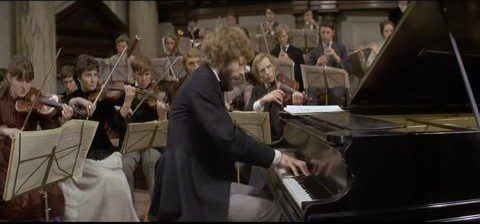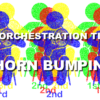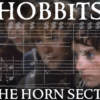 By early 1970, director Ken Russell had everything going for him. His third commercial feature film, “Women In Love,” was nominated for 6 Oscars, including a nod to him as Best Director, and scored Glenda Jackson her first Oscar for Best Actress. Meanwhile, “Song of Summer,” his biopic of the last years of composer Frederick Delius’ troubled life, was universally hailed as one of the best biographies ever filmed for television. Indeed, it’s still recognized as his best work (please see my review for more details).
By early 1970, director Ken Russell had everything going for him. His third commercial feature film, “Women In Love,” was nominated for 6 Oscars, including a nod to him as Best Director, and scored Glenda Jackson her first Oscar for Best Actress. Meanwhile, “Song of Summer,” his biopic of the last years of composer Frederick Delius’ troubled life, was universally hailed as one of the best biographies ever filmed for television. Indeed, it’s still recognized as his best work (please see my review for more details).
That’s why his immediate stumbles are all the more perplexing, as if his tendency for bathos suddenly increased as a proportional response to critical success. His treatment of Richard Strauss in the BBC film “Dance of the Seven Veils” was so offensive that the Strauss family removed all rights to the music, leaving the film effectively banned for the next 5 decades (though you may find it on YouTube – I’ll try to give it a review here on WordPress if time allows). And then there was the Tchaikovsky biography “The Music Lovers,” his attempt at continuing the legacy of adult drama he’d started with “Women In Love.” And sadly, for both film and concert music, his efforts were a bit of a dud.
Not that The Music Lovers is unwatchable – far from it. But expectations were so high at the time, that this disappointing film came across as a complete failure by comparison. It was followed by a string of similar films in which the excesses of the director became the real draw for the audience, like going to a boring party just to watch your outrageous mate make a complete ass of himself.
It’s worth noting some good points first. The subject of Tchaikovsky’s homosexuality is dealt with sympathetically, and as a simple matter of fact. His own shame and closeted frustrations are true to the letters he wrote to his brother, though nowhere near as dramatically presented as in the film. What’s more, the mannerisms of the gay men in the film aren’t campy or stereotyped, but fit their characters without being offensive.
Also, generally speaking, the casting excellent (with one glaring exception, which I’ll mention in a minute). Glenda Jackson acts up a storm as Tchaikovsky’s hapless wife, Antonina Miliukova, bringing a note of authenticity to the melodramatic scenes. But even better is the tortured Izabella Telezynska as Tchaikovsky’s patroness Nadezhda von Meck, struggling with her obsession over the man and his music. Also quite good is Christopher Gable as the on-again, off-again lover Count Anton Chiluvsky, a fictional merging of many of the men in Tchaikovsky’s life. It’s interesting to note that only a year had passed between Gable’s screen debut as composer-amanuensis Eric Fenby in Song of Summer. Here, he plays the role of jilted lover with graceful authority, and a very knowing approach to his character’s predilections and motives.
Interestingly, these three characters help to form the premise which drives the film. They are all “The Music Lovers,” with the addition of Tchaikovsky’s own sister Sasha, and in a guarded way, his mentor Anton Rubenstein. Their attraction to Tchaikovsky is based on their passion for his creative spark, as each in their way try to possess it, with eventual disastrous consequences for the object of their affections.
It could have made for an excellent film, historical inaccuracy notwithstanding. But Russell makes a series of very bad choices in the direction of the story, the emotional contours, and the interactions of his characters. What could have been great becomes farcical, with a heavy-handed, bludgeoning style telling the audience what to feel, and how to react. That only works with content that’s worth feeling – otherwise, it’s condescending.
But the worst choice by far is in the casting of a young Richard Chamberlain as Tchaikovsky. The actor is uncomfortable in the role, to say the least, and constantly has to be supported by his fellow actors, who seem to be walking him through some of the more pivotal scenes. There’s the type of shallowness that could easily make the uninformed viewer mistake the historical Tchaikovsky for the petty, undisciplined ditherer that Chamberlain portrays.
And sadly, that is no mistake, but exactly what Russell wants us to think. He wants us to believe that Tchaikovsky’s instabilities were due to an unbalanced mind, a weak character, and being haunted by the ghosts of his past. We are treated to a Fellini-esque scene of madcap, surreal crowds and cannons being fired while Tchaikovsky mugs and japes, which is supposed to represent his career as a conductor. Then we’re shown Tchaikovsky intentionally ordering a glass of cholera-infested water and drinking it to commit suicide over the guilt of his own treatment of his estranged wife. It’s nothing less than the incompetent blunderings of a director who isn’t sure how to end his own movie.
The above isn’t history, and it isn’t good filmmaking. How much more interesting it would have been to see a hint of the complexities of the real figures upon whom this film is based: the canny, endearing qualities of patroness von Meck; the simple, yet intelligent enough manner of the abandoned Miliukova; and the epic internal conflicts of Tchaikovsky as revealed by his own correspondence. Casting his career as a composer as a farce only backfires on the level of intelligence of the director. Tchaikovsky actually achieved career fulfillment and worldwide artistic credibility as a conductor of his own works, and his last opus numbers were composed specifically as repertoire for his tours. So the irony is that the very music which Ken Russell uses to emotionally justify his vision stands in direct opposition to his final premise. Few composer-film directors have shot themselves in the foot with such deliberate thoroughness. But as we’ll see, Russell was happy to do so again and again, until his films became a parody of everything he’d worked so hard for at the BBC.
Historical accuracy: **
Director Russell’s attempt to prove some sort of a point about great composers obscures what was actually courageous and worth knowing about this composer’s character.
Educational value about its subject: *
Frightful. It feeds into a host of misconceptions about Tchaikovsky that were known to be false even in 1970, when the film was made.
Narrative: **
Extremely muddled. Artist destroyed by his own guilt, forced to make tragic choices about the people who pushed themselves upon him. That’s barely a good fictional plot, and it’s certainly no relation to reality.
Direction: **
This was a foreshadowing of the depths of self-indulgence that would soon obliterate Ken Russell’s reputation as a credible artist.
Acting: ***
Excellent supporting actors doing all the heavy lifting for the somewhat weak lead, and it shows.
Music: ***
Some keen choices showing a deep knowledge of the Tchaikovsky catalogue, marred by some corny and obvious excerpts plastered as musical wallpaper behind regrettable scenes – all very nicely conducted by André Previn with LSO
Final Tally: ** stars – watchable, but in need of much improvement








